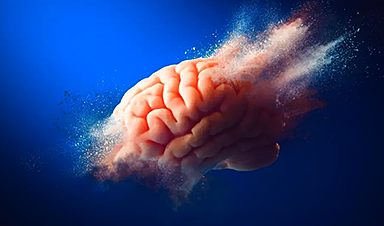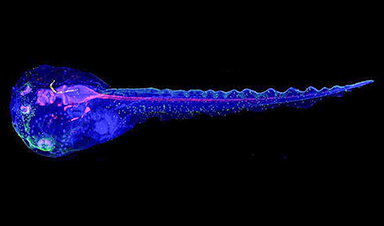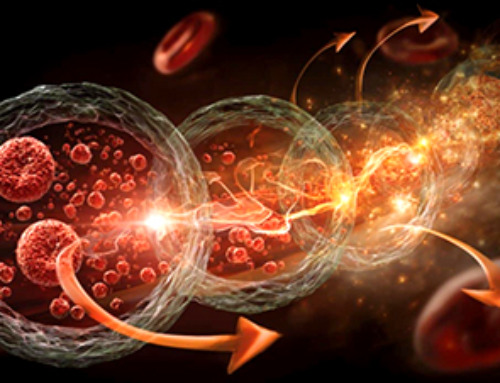What determines whether an individual will develop Alzheimer’s disease, and why do many with the disease’s characteristic toxic amyloid accumulations in the brain never exhibit associated dementia symptoms? These perplexing questions have long puzzled researchers.
Scientists from the University of Pittsburgh School of Medicine seem to have unveiled the answer. According to their groundbreaking research published in Nature Medicine, star-shaped brain cells known as astrocytes play a crucial role in the progression of Alzheimer’s disease.
By testing the blood of more than 1,000 cognitively unimpaired elderly people with and without amyloid pathology, the Pitt-led research team found that only those who had a combination of amyloid burden and blood markers of abnormal astrocyte activation, or reactivity, would progress to symptomatic Alzheimer’s in the future, a critical discovery for drug development aimed at halting progression.
Alzheimer’s disease is a neurodegenerative condition that causes progressive memory loss and dementia, robbing patients of many productive years of life. At the tissue level, the hallmark of Alzheimer’s disease is an accumulation of amyloid plaques—protein aggregates lodged between nerve cells of the brain—and clumps of disordered protein fibers, called tau tangles, forming inside the neurons.
For many decades brain scientists believed that an accumulation of amyloid plaques and tau tangles is not only a sign of Alzheimer’s disease but also its direct culprit. This assumption also led drug manufacturers to heavily invest into molecules targeting amyloid and tau, overlooking the contribution of other brain processes, such as the neuroimmune system.
Recent discoveries by groups like Pascoal’s suggest that the disruption of other brain processes, such as heightened brain inflammation, might be just as important as amyloid burden itself in starting the pathological cascade of neuronal death that causes rapid cognitive decline.
In his previous research, Pascoal and his group found that brain tissue inflammation triggers the spread of pathologically misfolded proteins in the brain and is a direct cause of eventual cognitive impairment in patients with Alzheimer’s disease. Now, almost two years later, researchers revealed that cognitive impairment can be predicted by a blood test.
Astrocytes are specialized cells abundant in the brain tissue. Just as other members of the glia—resident immune cells of the brain—astrocytes support neuronal cells by supplying them with nutrients and oxygen and protecting them from pathogens. But because glial cells don’t conduct electricity and, at first, didn’t seem to play a direct role in how neurons communicate with one another, their role in health and disease had been overlooked. The latest research from Pitt changes that.
“Astrocytes coordinate brain amyloid and tau relationship like a conductor directing the orchestra,” said lead author of the study Bruna Bellaver, Ph.D., postdoctoral associate at Pitt. “This can be a game-changer to the field, since glial biomarkers, in general, are not considered in any main disease model.”
Scientists tested blood samples from participants in three independent studies of cognitively unimpaired elderly people for biomarkers of astrocyte reactivity—glial fibrillary acidic protein, or GFAP—along with the presence of pathological tau. The study showed that only those who were positive for both amyloid and astrocyte reactivity showed evidence of progressively developing tau pathology, indicating a predisposition to clinical symptoms of Alzheimer’s disease.
The findings have direct implications for future clinical trials for Alzheimer’s drug candidates. In aiming to halt disease progression sooner, trials are moving to earlier and earlier stages of pre-symptomatic disease, making correct early diagnosis of Alzheimer’s risk critical for success. Because a significant percentage of amyloid-positive individuals will not progress to clinical forms of Alzheimer’s, amyloid positivity alone is not enough to determine an individual’s eligibility for therapy.
Inclusion of astrocyte reactivity markers, such as GFAP, in the panel of diagnostic tests will allow for improved selection of patients who are likely to progress to later stages of Alzheimer’s and, therefore, help fine-tune the selection of candidates for therapeutic interventions who are more likely to benefit.
News
AI matches doctors in mapping lung tumors for radiation therapy
In radiation therapy, precision can save lives. Oncologists must carefully map the size and location of a tumor before delivering high-dose radiation to destroy cancer cells while sparing healthy tissue. But this process, called [...]
Scientists Finally “See” Key Protein That Controls Inflammation
Researchers used advanced microscopy to uncover important protein structures. For the first time, two important protein structures in the human body are being visualized, thanks in part to cutting-edge technology at the University of [...]
AI tool detects 9 types of dementia from a single brain scan
Mayo Clinic researchers have developed a new artificial intelligence (AI) tool that helps clinicians identify brain activity patterns linked to nine types of dementia, including Alzheimer's disease, using a single, widely available scan—a transformative [...]
Is plastic packaging putting more than just food on your plate?
New research reveals that common food packaging and utensils can shed microscopic plastics into our food, prompting urgent calls for stricter testing and updated regulations to protect public health. Beyond microplastics: The analysis intentionally [...]
Aging Spreads Through the Bloodstream
Summary: New research reveals that aging isn’t just a local cellular process—it can spread throughout the body via the bloodstream. A redox-sensitive protein called ReHMGB1, secreted by senescent cells, was found to trigger aging features [...]
AI and nanomedicine find rare biomarkers for prostrate cancer and atherosclerosis
Imagine a stadium packed with 75,000 fans, all wearing green and white jerseys—except one person in a solid green shirt. Finding that person would be tough. That's how hard it is for scientists to [...]
Are Pesticides Breeding the Next Pandemic? Experts Warn of Fungal Superbugs
Fungicides used in agriculture have been linked to an increase in resistance to antifungal drugs in both humans and animals. Fungal infections are on the rise, and two UC Davis infectious disease experts, Dr. George Thompson [...]
Scientists Crack the 500-Million-Year-Old Code That Controls Your Immune System
A collaborative team from Penn Medicine and Penn Engineering has uncovered the mathematical principles behind a 500-million-year-old protein network that determines whether foreign materials are recognized as friend or foe. How does your body [...]
Team discovers how tiny parts of cells stay organized, new insights for blocking cancer growth
A team of international researchers led by scientists at City of Hope provides the most thorough account yet of an elusive target for cancer treatment. Published in Science Advances, the study suggests a complex signaling [...]
Nanomaterials in Ophthalmology: A Review
Eye diseases are becoming more common. In 2020, over 250 million people had mild vision problems, and 295 million experienced moderate to severe ocular conditions. In response, researchers are turning to nanotechnology and nanomaterials—tools that are transforming [...]
Natural Plant Extract Removes up to 90% of Microplastics From Water
Researchers found that natural polymers derived from okra and fenugreek are highly effective at removing microplastics from water. The same sticky substances that make okra slimy and give fenugreek its gel-like texture could help [...]
Instant coffee may damage your eyes, genetic study finds
A new genetic study shows that just one extra cup of instant coffee a day could significantly increase your risk of developing dry AMD, shedding fresh light on how our daily beverage choices may [...]
Nanoneedle patch offers painless alternative to traditional cancer biopsies
A patch containing tens of millions of microscopic nanoneedles could soon replace traditional biopsies, scientists have found. The patch offers a painless and less invasive alternative for millions of patients worldwide who undergo biopsies [...]
Small antibodies provide broad protection against SARS coronaviruses
Scientists have discovered a unique class of small antibodies that are strongly protective against a wide range of SARS coronaviruses, including SARS-CoV-1 and numerous early and recent SARS-CoV-2 variants. The unique antibodies target an [...]
Controlling This One Molecule Could Halt Alzheimer’s in Its Tracks
New research identifies the immune molecule STING as a driver of brain damage in Alzheimer’s. A new approach to Alzheimer’s disease has led to an exciting discovery that could help stop the devastating cognitive decline [...]
Cyborg tadpoles are helping us learn how brain development starts
How does our brain, which is capable of generating complex thoughts, actions and even self-reflection, grow out of essentially nothing? An experiment in tadpoles, in which an electronic implant was incorporated into a precursor [...]





















